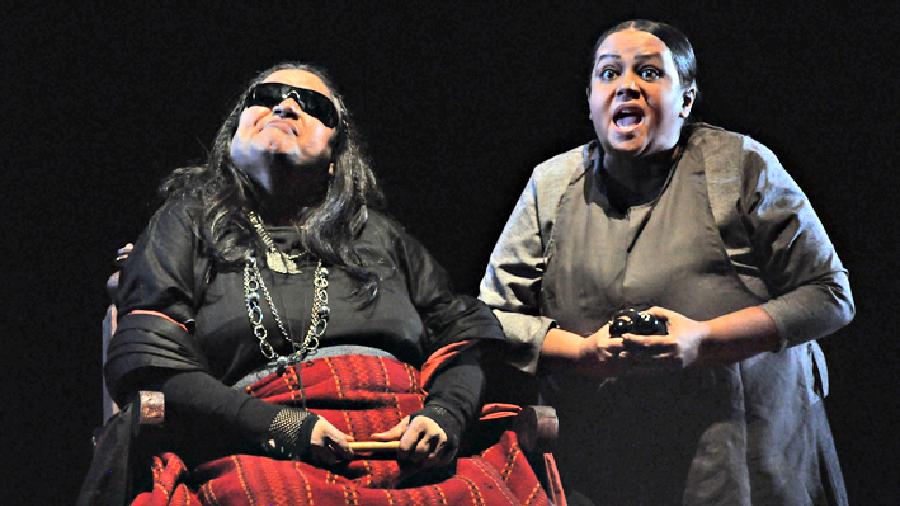Little Thespian, renowned for its socially relevant theatre with hard-hitting political content, turned metaphysical just before the pandemic struck. S.M. Azhar Alam (1968-2021) had scripted and directed Roohein with a graveyard as the backdrop. Azhar’s last directorial work was a Hindi adaptation of Samuel Beckett’s Endgame. It premiered in February last year, two months before the pandemic claimed him. One feels tempted to marvel at Azhar’s clairvoyance — the world was grappling with the pandemic that confined us at home, exactly the kind of situation dealt with apparent absurdity in Beckett’s 1957 play.
At the Academy of Fine Arts on October 12 — the third show of this production — my surprise doubled. Azhar made Uma Jhunjhunwala both translate Beckett’s text to Hindi and play the central character. With this gender reversal, Hamm became Hukmarani Aurat, a matriarch who is blind, paralysed and confined to a wheelchair. Her personal attendant, Ekantika (Chandreyee Mitra), once again, reverses Beckett’s gender preference. Jhunjhunwala’s expertise in translating the socio-cultural codes shone brightly as the text, rooted in post-World War II Europe, started finding roots in contemporary India. Beckett’s signature use of two characters to explore power equations and to underline the violence working beneath human actions was given its due in Azhar’s direction. The absurdity was taken to a new height when he cast two younger actors to play Aurat’s old parents (Intekhab Warsi and Priyanka) who are confined in dustbins.
With movements restricted, the 85-minute-long production depended heavily on Azhar’s production design. Both the main players adopted a new speech pattern, besides making faces and experimenting freely with the facial muscles. The chessboard symbolism embedded in the script was partially played out onstage with Ekantika, the attendant, moving Hukmarani’s wheelchair to strategic positions. Azhar took charge of music and lights, demonstrating his total command over the contemporary theatre idiom. Jhunjhunwala and Mitra complemented each other like a dream, making Endgame a compelling watch.











